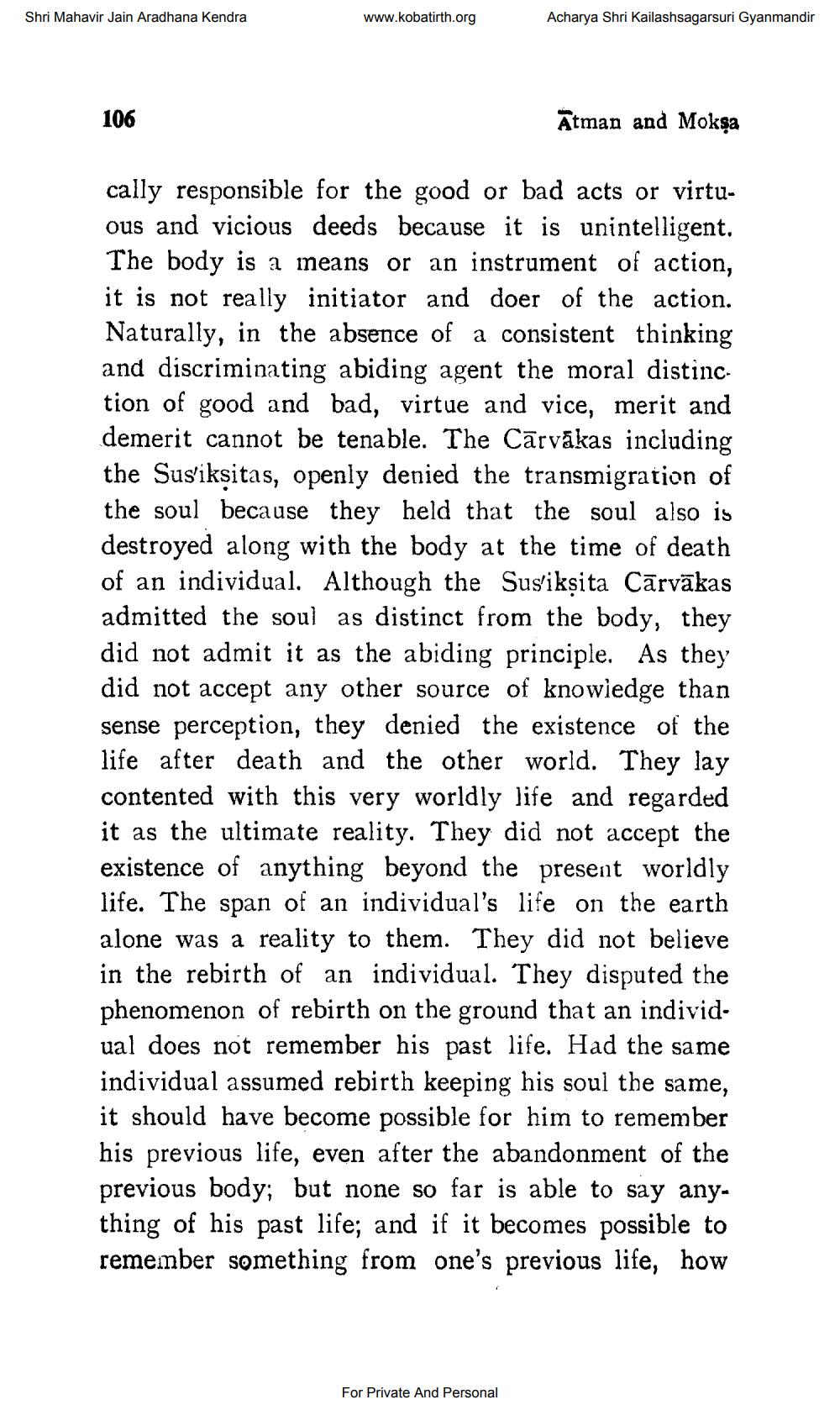________________
Shri Mahavir Jain Aradhana Kendra
106
www.kobatirth.org
Acharya Shri Kailashsagarsuri Gyanmandir
For Private And Personal
Atman and Mokṣa
cally responsible for the good or bad acts or virtuous and vicious deeds because it is unintelligent. The body is a means or an instrument of action, it is not really initiator and doer of the action. Naturally, in the absence of a consistent thinking and discriminating abiding agent the moral distinction of good and bad, virtue and vice, merit and demerit cannot be tenable. The Carvākas including the Sus'iksitas, openly denied the transmigration of the soul because they held that the soul also is destroyed along with the body at the time of death of an individual. Although the Susikṣita Carvākas admitted the soul as distinct from the body, they did not admit it as the abiding principle. As they did not accept any other source of knowledge than sense perception, they denied the existence of the life after death and the other world. They lay contented with this very worldly life and regarded it as the ultimate reality. They did not accept the existence of anything beyond the present worldly life. The span of an individual's life on the earth alone was a reality to them. They did not believe in the rebirth of an individual. They disputed the phenomenon of rebirth on the ground that an individual does not remember his past life. Had the same individual assumed rebirth keeping his soul the same, it should have become possible for him to remember his previous life, even after the abandonment of the previous body; but none so far is able to say anything of his past life; and if it becomes possible to remember something from one's previous life, how




